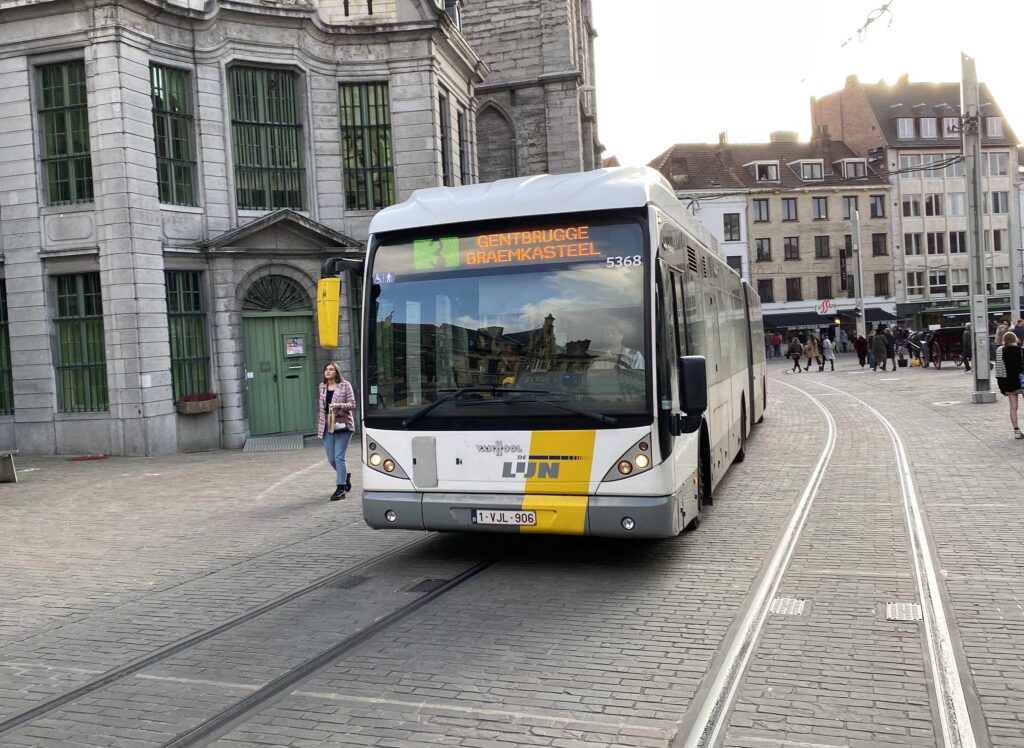This decision has not only financial, but also environmental and social implications.
The transition to sustainable mobility is central to the strategies of public transport companies worldwide, with electric buses playing a key role in reducing the ecological footprint. De Lijn, the Flemish transport company, recently took a major step in this transition with a large order for 92 electric buses. This decision, however, has sparked a wave of debate and controversy within the industry and beyond, particularly around the choice of Chinese manufacturer Build Your Dreams (BYD) as supplier.
The award report, which the Flemish newspaper De Standaard could request through the Freedom of Information Act, revealed that BYD's offer for the electric buses at least 20% cheaper was than that of the competition. Nevertheless, in terms of sustainability, BYD scored the lowest of all participating parties. This paradox between costs and quality/sustainability highlights the complex trade-offs involved in public procurement, especially in sectors that are crucial for the transition to a more sustainable future.
investment
The investment, which amounted to more than 43 million euros, or an average of around 470.000 euros per bus, marks a significant financial commitment for De Lijn. The choice of BYD, despite their lower sustainability score, was driven by economic considerations, a reality that many public transport companies face. The alternative, which was a quarter more expensive, would have forced De Lijn to purchase fewer buses with a similar budget, or to spend more than 10 million euros extra for the same number of vehicles.
This decision has not only financial, but also environmental and social implications. On the one hand, it underlines the pressure on public transport companies to modernize and green in a cost-efficient manner. On the other hand, it raises questions about the long-term effects of prioritizing costs over sustainability and local economic development. The fact that BYD produces its buses in Hungary adds an extra dimension to the debate, given the potential impact on local suppliers such as Belgian company Van Hool, which is in a difficult period located.

On the one hand, there is the pressure to green and modernize within a tight budget, which makes the attractive pricing of companies such as BYD very tempting. On the other hand, it raises the question of the long-term consequences of such purchases on the European economy and local industries, as in the case of the Belgian Van Hool.
The response from De Lijn chairman Johan Sauwens, who indicates that price was indeed a decisive factor, emphasizes the reality that many companies and government agencies face when balancing costs, quality and sustainability. The lack of objections to the award suggests an acceptance of this reality, although it does not remove the underlying tensions.
De Lijn's choice of BYD raises fundamental questions about the criteria used in public tenders, in particular the weighting of economically beneficial tenders against sustainability objectives. It illustrates the complexity of decision-making in an era when the urgency of climate action clashes with economic realities and budgetary constraints.
to care
The European Commission's concerns reflect a deeper concern about potentially distorted competition in the European market caused by foreign subsidies to Chinese manufacturers such as BYD. These subsidies can distort market conditions and place European companies at a disadvantage. The case of Bulgarian railways serves as a concrete example of how Chinese companies, with significant financial support from their government, can offer products at significantly lower prices, raising questions about the fairness of competition within the European Union.
The debate surrounding BYD and the purchase of De Lijn illustrates the broader issues of globalization, trade, and economic strategies. It underlines the need for a balanced approach that considers not only the direct costs and benefits, but also the wider economic, social and environmental implications. It also emphasizes the importance of international cooperation and regulation to ensure a level playing field and promote sustainable growth and development.




